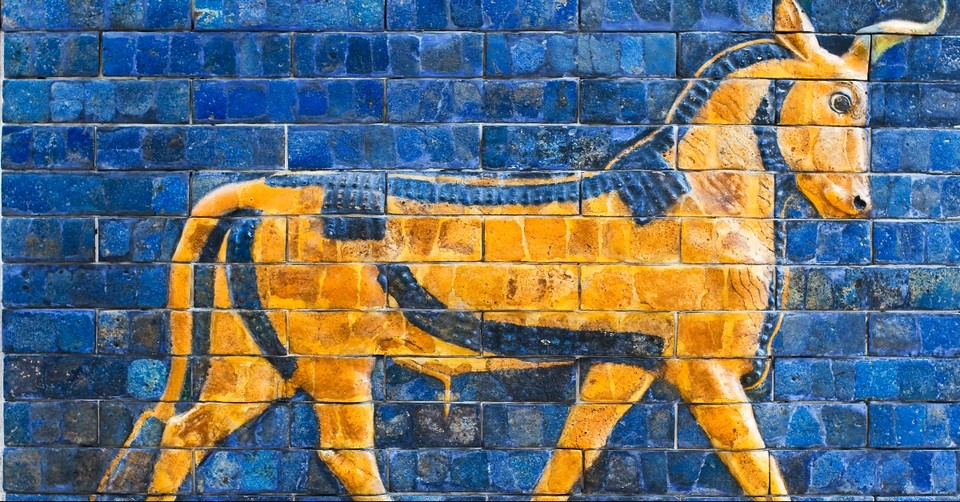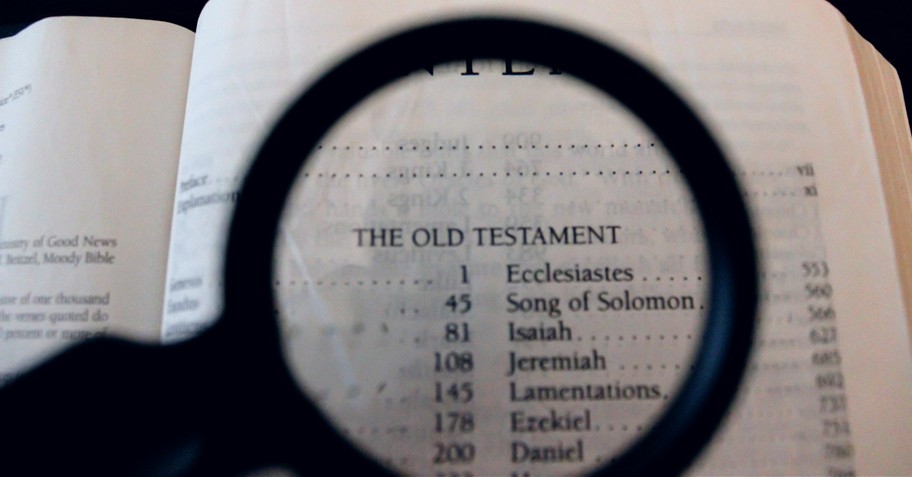Who was Baal in the Bible? Meaning and History

In the Bible, Baal is not a single individual but rather a complex figure with various connotations. Baal is primarily associated with a group of ancient Semitic deities worshipped in the region, particularly in the context of Canaanite and Phoenician religions. The name "Baal" itself means "lord" or "master" in Semitic languages and was used both as a title and as a name for specific deities.
It doesn’t take an extensive read-through of the Old Testament to note the pervasive influence of idolatry in Israel’s history. Though God had established a covenant relationship with the nation of Israel, instructing His people to separate themselves from the religion and practices of their neighbors, the Israelites frequently turned to other gods and idol worship, including Baal, the supreme deity of the Canaanites. The word Baal means "lord" and was the supreme male divinity of the Phoenician and Canannitish nations.
Who Was Baal?
The name Baal in the Bible is most commonly associated with the Canaanite and Phoenician god of fertility, the rain, the sun, and the storm.
Baal was considered the supreme god and master of all the other gods. In many instances, various cities would have their own special Baal. This is where we see the name used in conjunction with a specific locality, such as Baal-Peor, Baal-Gad, and Baal-Hermon. The Baals or Baalim (plural) were considered the lords of their respective lands.
Baal as a Title:
The word "Baal" itself translates to "lord" or "master" in Semitic languages. In the Bible, it is sometimes used as a title rather than a specific name. Various places and people were associated with Baal, such as Baal-Peor (Numbers 25:3), Baal-zebub (2 Kings 1:2), and Baal-gad (Joshua 11:17).
Baal as a Deity:
Baal is most commonly associated with a group of ancient Semitic deities worshipped in the region, often called "Baalim" in plural. These gods were considered patrons of various natural forces, including fertility, rain, and agriculture. The Canaanite god Baal, also known as Baal Hadad, was one of the prominent deities in this pantheon.
Baal in Idolatry:
Throughout the Old Testament, there are numerous accounts of the Israelites turning to the worship of Baal, which is consistently condemned as idolatry. The worship of Baal involved rituals, sacrifices, and the construction of idols, which ran counter to the commandments of the God of Israel.
Prophets of Baal:
Perhaps the most famous encounter involving Baal is the story of the prophet Elijah's confrontation with the prophets of Baal on Mount Carmel (1 Kings 18). This event serves as a dramatic demonstration of the power and authority of the God of Israel over Baal.
Baal's Decline:
Over time, the worship of Baal waned, and the prophets of Israel consistently condemned it. The Bible narrates the eventual decline of the worship of Baal, aligning with the historical shifts in the region.

Where Is Baal Mentioned in the Bible?
When Baal is mentioned in the Old Testament, most references and meanings point to the singular pagan deity.
It is important to note, however, that the word “baal” was earlier used as a common noun that meant “owner” or “lord”. Proper names could incorporate “baal” in this regard, and the Hebrews would sometimes refer to Yahweh as their “baal” to signify His place as the “master” or “lord” of their life. In this context “baal” was a term of reverence and respect, not exclusively idol worship.
Over time, though, “baal” became more synonymous with the god of fertility in Canaanite religion. It was then elevated to a proper noun (Baal) to fit Baal’s cultural status as a “prince” or “lord” of the earth.
Like most things corrupted by sin, even language can be twisted and perverted. For this reason, the word “baal” became repugnant and abhorrent to the Yahweh, given Israel’s history with Baal worship.
In fact, in the time of Hosea, God instructed His people to remove all mention of “baal” from their conversations:
“’In that day,’ declares the Lord, ‘you will call me ‘my husband’; you will no longer call me ‘my master’ (or my baal). I will remove the names of the Baals from her lips; no longer will their names be invoked.’” (Hosea 2:16-17)
Following the exodus from Egypt, God warned His people to stay away from the gods of the Canaanites and trust in Him alone. After all, it was Yahweh who had heard their cries from slavery, delivered them from Egypt in glorious fashion, and provided for them every step of the way. That didn’t stop the Israelites from supplementing their faith in Yahweh with prayers to local deities. In some instances, the Israelites outright abandoned God in favor of carven idols.
Photo Credit: iStock/Getty Images Plus/JerryGrugin
The Worship of Baal in the Bible
In the episode with the golden calf (Exodus 32), the Israelites proved how quickly they had forgotten the wonders and promises of God, not to mention His first and second commandments:
“You shall have no other gods before me. You shall not make for yourself an image in the form of anything in heaven above or on the earth beneath or in the waters below. You shall not bow down to them or worship them; for I, the Lord your God, am a jealous God.” (Exodus 20:1-2)
Instead of keeping their end of the bargain and following God’s command to remain in an exclusive relationship, the Israelites turned to other gods and idols for guidance and provision (Exodus 32). This trend would continue throughout the Old Testament.
In Number 25, we find the first mention of Israel being enticed to worship the Baal of Peor.
“While Israel remained at Shittim, the people began to commit infidelity with the daughters of Moab. For they invited the people to the sacrifices of their gods, and the people ate and bowed down to their gods. So Israel became followers of Baal of Peor, and the Lord was angry with Israel.” (Numbers 25:1-3)
God had warned His people to avoid the religious practices of their neighbors before entering the Promised Land (Deuteronomy 6:14-15). Unfortunately, the influence of Canaanite culture, religion, and idolatry proved too pervasive and attractive to resist.
The Israelites had also not done themselves any favors by intermarrying with Canaanite women and allowing their religious practices to infiltrate their homes.
In the time of the Judges, Baal worship became even more prominent (Judges 2:11). The prophet Samuel warned God’s people to turn away from their idols or suffer the consequences of foreign oppression at the hands of the Philistines (1 Samuel 7:3-4).
It wasn’t until the reign of King Ahab, however, that Baal worship became normalized and widespread. Influenced by the religion of his Phoenician wife Jezebel, Ahab allowed Baal worship to become a dominant religion in Israel, as he erected altars, temples, and statues to Baal and Asherah throughout the land. Ahab and his queen even employed 450 prophets and priests to lead God’s people in ritual worship, prayer, and sacrifice to Baal. In fact, 1 Kings tells us that “Ahab did more to provoke the Lord God of Israel than all the kings of Israel who were before him.” (1 Kings 16:33)
As a direct challenge to the Israelites’ faith in Baal, who they worshipped as the “god of rain”, God withheld rain and dew from the land for three years to prove that He alone was Creator and Lord (1 Kings 17:1).
In those days, God also sent His prophet Elijah to admonish Ahab and direct the hearts of Israel back to God. On Mount Carmel, Elijah challenged the 450 prophets of Baal to a showdown to settle once and for all who was God over Israel (1 Kings 18)
In the challenge, Elijah and the prophets of Baal were each to call out to their god to send fire from heaven to ignite the altar erected in their name. The 450 prophets of Baal called out to Baal all day and night, “but there was no voice, no one answered, and no one paid attention.” (1 Kings 18:29)
Exhausted, the prophets of Baal finally gave up. Then, in a simple prayer, Elijah called out to God and God swiftly answered with fire from heaven, putting the prophets of Baal and Baal himself to shame. “When all the people saw it, they fell on their faces; and they said, ‘the Lord, He is God; the Lord; He is God.” (1 Kings 18:40)
However, though God’s display on Mount Carmel had demonstrated His power over Baal and His sovereignty over creation, revival in Israel was short-lived.
The Israelites would continue to worship idols and look to foreign gods, influencing their brothers in Judah to the South with their pagan practices (2 Kings 17:19)
Unfortunately, it took exile and captivity at the hands of Babylon to finally put an end to Baal worship in Israel and break God’s people of their idolatry (Zephaniah 1:4-6).
In the New Testament, Jesus would go on to refer to Satan as “Beelzebub” (Matthew 12:27), equating the devil with Baal-Zebub, the Philistine god of flies (2 Kings 1:2).

What Does the Bible Tell Us about Baal and Those Who Worshipped Him?
Historical evidence and the Bible tell us that those who worshipped Baal looked to the pagan god for rain to water their crops, strength to defeat their enemies, and fertility to produce children.
Temple prostitution and sensual forms of worship were common in Baal worship as was occasional human sacrifice, namely children, who were burnt alive to appease the god of fertility (Jeremiah 18:5). In fact, King Ahaz of Judah was said to have made molten images of the Baals, burning his own sons alive in fire “according to the abominations of the nations” (2 Chronicles 28:3)
We also see in the showdown on Mount Carmel, the priests of Baal were known for ritual worship that involved loud, ecstatic cries, frenzied behavior, and various forms of cutting and self-mutilation (1 Kings 18).
God, of course, had no love or tolerance for the abominable practices of those who worshipped Baal, demanding that Israel purge these pagan rituals and images from their midst. When they did, God’s mercy was plentiful. When they didn’t, His judgment was severe.
What Can We Learn about Our Own Faith from Other Gods?
Christians today may be quick to dismiss Baal worship and other forms of idolatry mentioned in the Old Testament as antiquated or extinct. It is true that God used Israel’s time in captivity to break His people of the habitual sin of idolatry, and when the remnant of Israel returned to Jerusalem, it seems they had learned their lesson and finally done away with their worship of Baal and other idols. Furthermore, we would be hard-pressed to find many today who openly worship Baal or any of the pagan gods of the Old Testament by name.
However, as was the case in the Old Testament, various forms of idol worship often evolve and rather than outright disappear. The same evil and rebellious nature that we read about in the Old Testament has never gone away. It has simply repackaged itself for today’s generations.
Today, the devil is much more subtle and subversive in luring humanity away from God than we often realize. Many things can present themselves as substitutes or alternatives to God, including human leaders, government, various forms of technology, pleasure, entertainment, fame, and money, which can all manifest as the gods of people’s lives. It has been happening for centuries.
In Israel’s case, the people often fell into idolatry when they no longer understood or cherished their relationship with God or simply forgot their history and the miracles of God altogether (Judges 2:10-12). The same is true for believers today when we forget the love, grace, and promises of God.
Of course, there are numerous attributes of God revealed in Scripture that blatantly expose the false, inadequate nature of all other gods and religions.
For example, unlike the pagan gods of the Old Testament …
- God hears His people and answers their cries
- God delivers His people
- God provides for His people
- God forgives and redeems His people
Furthermore, where many religions and other gods demand sacrifice and works-based appeasement, the God of the Bible offers eternal life and redemption, not through our works, but by His grace and the sacrifice of His Son, Jesus Christ (2 Timothy 1:9).
And though it may seem frivolous to worship a statue or inanimate object, the apostle Paul reminded the Corinthians that those who sacrifice to pagan gods might actually be sacrificing to demons who pose as gods (1 Corinthians 10:20). Moses gave the same warning to the children of Israel in Deuteronomy 32.
In any case, Christians today would be wise to learn from the mistakes of Israel and become more vigilant in keeping all forms of evil and idolatry far from their lives. God’s expectations for His followers are clear. He alone is trustworthy, and He alone is worthy of praise.
Photo Credit: Unsplash/Anna Pritchard
Main Photo Credit: ©iStock/Getty Images Plus/ggenova

The Significance of Baal
Baal's presence in the Bible is a testament to the religious and cultural context of the time. The Israelites' struggle to remain faithful to the God of Israel, despite the allure of Baal worship, serves as a recurring theme throughout the Old Testament. Here are some ways that Christians today can learn from the example of Baal in the Bible:
True Worship: The worship of Baal in the Old Testament is idolatry, a violation of the First Commandment: "You shall have no other gods before me" (Exodus 20:3). For Christians today, this serves as a reminder of the importance of exclusive worship of the One True God, revealed to us as the Holy Trinity. Avoiding idolatry means recognizing God as the sole object of worship and devotion.
Discernment of False Beliefs: Baal worship in the Bible is associated with false beliefs, superstitions, and rituals contrary to God's teachings. Today, Christians can learn from this and exercise discernment, critically evaluating beliefs, practices, and ideologies that may conflict with their Christian faith.
Renouncing Materialism: Baal was often associated with fertility and agricultural concerns. In modern times, avoiding idolatry may involve not letting material wealth, success, or possessions become idols that precede one's relationship with God. It serves as a reminder to prioritize spiritual values over material ones.
In conclusion, Baal in the Bible represents not just a single character but a multifaceted concept encompassing idolatry, a polytheistic pantheon, and a challenge to the faith of the Israelites. Understanding Baal's significance in the Bible enriches our comprehension of the historical and religious dynamics of the ancient world, offering valuable insights into the development of the Christian tradition.
Photo: Oladimeji Ajegbile/Pexels
Originally published October 11, 2023.






